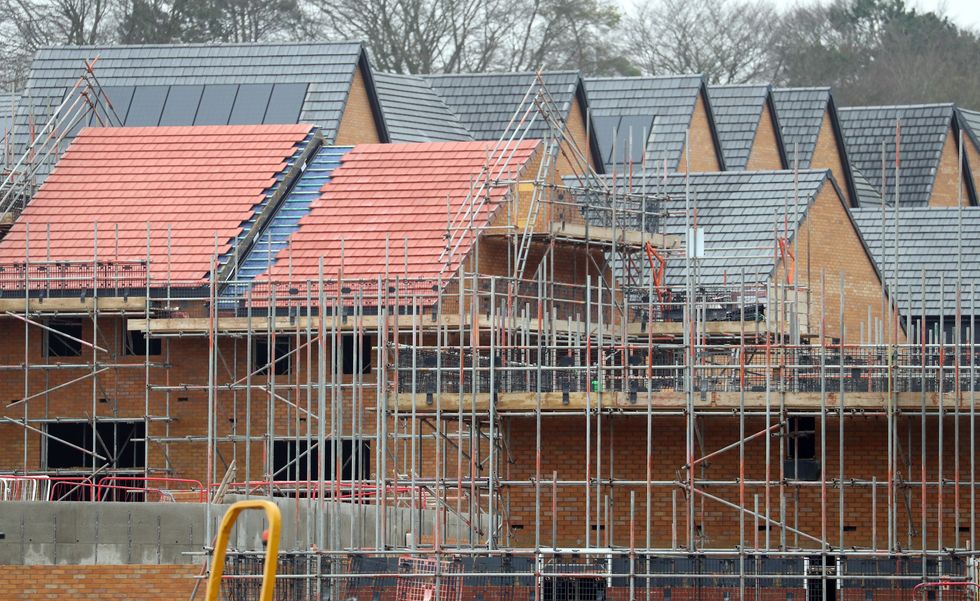More than 1.1 million homes granted planning permission in England in the past decade are yet to be built, according to the Local Government Association (LGA).
Rui Vieira
Policies such as the Right to Buy enabled thousands of working-class Brits to buy their council homes, but has left many others behind
Don't Miss
Most Read
Trending on GB News
The “culture wars” are broadly defined as a cultural conflict wherein a struggle takes place within a society between different, often competing value systems for dominance. The mid to late 2010s have been widely regarded as a turning point wherein “cultural” (as opposed to political) issues came to dominate the public conversation in Britain.
This cultural conversation often centred around the construction of various identities: national, ethnic, sexual, racial and gender, and brought forth fundamental questions such as: What does it mean to be British? Does race matter? Is there a conflict between sex-based rights and gender identity? Can the public be trusted?
Indeed, just as there has been significant debate about how we should constitute our identities, there has been much discussion about the origins of this cultural divide. British journalist David Goodhart in his timely book 'The Road to Somewhere' locates the cultural rift in the division between the metropolitan, highly mobile, graduate class of the Anywheres between the rooted, patriotic and communitarian Somewheres.
Houses under construction on a housing development in Basingstoke, Hampshire. PA Photo. Picture date: Tuesday January 7, 2020. Photo credit should read: Andrew Matthews/PA Wire
Andrew Matthews
Other’s put forward different theories, suggesting that the line is between those who believe in freedom (freedom of speech, national sovereignty, citizenship and democracy) and those who don’t (technocratic, managerial, speech regulation).
Deeper still, some argue that the line goes to the heart of what it means to be human, and whether you believe humans have agency and moral independence or are primarily fragile and vulnerable.
There is probably some truth in all of these explanations. However, one thing that has stood out in the culture wars has been the seemingly large generational fault lines in cultural attitudes. Be that attitudes towards Brexit, environmentalism, the monarchy, sex and racism, the generational divide is strikingly stark.
Many argue that young people have always tended towards left-leaning, socially liberal attitudes, but, this is far from inevitable. What else could be driving this generational cultural split?
Numerous governments have failed to deliver when it comes to homebuilding, writes Inaya Folarin Iman.
Leon Neal
The notion of a property-owning democracy, which sees the state promote the widespread ownership of property across the population, notably accelerated under the Thatcher years.
Policies such as the Right to Buy enabled thousands of working-class Brits to buy their council homes and build up assets and wealth in ways previously out of reach. This move helped turn Britain into a property-loving nation and expanded home ownership for a generation. However, this exciting new possibility would soon create new challenges a generation later.
The proportion of people living in council homes plummeted, house building slowed, and prices soared at the same time as when people’s status was increasingly tied to whether they owned a property. This shift was happening when changing economic realities were leading to wage stagnation and the overall cost of living going up.
Research has shown that the average house price is eight times the average UK earnings today. This is compared to just four times average earnings in the early 1980s and 1990s. In London, the figures are much higher, and this has produced generation rent. This concoction is leading to a growing divide between expectation and reality, especially amongst the young.
With more than 50% of young people now going to university, the promise of a better life and being better off than your parents has been broken. This false promise is arguably storing up resentment and contributing to a lack of faith in the system, as they have failed to bring about the assurance of progress. Successive governments have attempted to respond to this challenge, with schemes like Help to Buy.
Inaya Folarin Iman
For too many people, stability and security feel far out of reach
But far too many of these issues are half-hearted, merely focusing on the demand-side rather than the supply-side and deep structural problems at the root of the issue. Whilst young people are frustratingly stereotyped as avocado-eating, coffee-drinking snowflakes who travel on expensive holidays, it is less often discussed how the contemporary markers of achieved adulthood.
Buying a house, starting a family, building a stake in society are increasingly out of reach for a generation. Whilst socialised into a globalised world of high expectations, in reality they have inherited a diminished economic package.
This is, of course, only part of the picture. In truth, the “generational conflict” is based off of many misleading and misguided assumptions. Whilst many older people own property, they may be cash-poor, and many have to sell their homes to pay for elderly care. Many young people are buying a house later, but not necessarily never. Young people are less likely to vote, and are therefore not influencing the political agenda in their favour.
All in all, young people have sacrificed a lot during this pandemic, and if there is anything this awful year has taught us, it is that we should care for not just our own interest, but for others too. Young people need to be able to build a stake in society and feel that if they are doing the right thing, it will pay off. For too many people, stability and security feel far out of reach.










